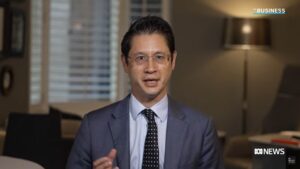
London-based China veteran Mark Schaub summarizes in his China Chit-chat newsletter the meetings his law firm had with 24 Ultra High Net Worth Individuals (HNWI) from China over the last three months of 2023. They were checking out opportunities in Europe and the Middle East, partly because their offspring was not really interested in joining their China business. They would look for lessons from their European counterparts but failed because of the differences between Chinese and Europeans, and because the concept of paying for professional legal advice did not yet take root among the Chinese visitors.
Mark Schaub:
All were consigned to or possibly happy to continue to live in China as their primary base. Europe and the Middle East are nice to visit but if you are in your 50s or 60s there is no place like home. Also most had the problem that they felt they had to continue to run the family business. Their children had studied around the world at elite institutions but seem unlikely that many would follow in their parent’s footsteps to run the whole shebang. One takeaway from the recent meeting was that Chinese private companies will need to recruit professional managers to run their family-owned businesses even more than is the case for European or USA counterparts – the kids seem to have little interest in running the family business. In some cases, one child was working in the business in China, but the others were living outside China.
Interestingly, almost everyone we met was highly motivated to do … something! But it seemed that they did not have a network in Europe or the Middle East or even know who to trust or how to go about things.
The greatest single motivation for almost everyone (at least stated) was their children’s future. All had educated their children in an Anglo-Saxon nation (either UK, Australia or USA). USA seemed to be less interesting due to both geo-political concerns but also the possibility of being shot.
It was interesting how multi-billionaires were desperate to get their offspring into an internship with an investment bank. One would think such people would have the network or connections to make this happen with a click of their fingers. You would think so, but you would be wrong.
Much more entertaining observations in the China Chit-chat newsletter.
Mark Schaub is a speaker at the China Speakers Bureau. Do you need him at your meeting or conference? Do get in touch or fill in our speakers’ request form.
Are you looking for more experts on China’s outbound investments? Do check out this list.



 Fast food giant McDonald’s is expanding its footprint in China with one-third of its planned 9,000 new restaurants. China is key for McDonald’s expansion, says
Fast food giant McDonald’s is expanding its footprint in China with one-third of its planned 9,000 new restaurants. China is key for McDonald’s expansion, says 







 Rating agencies have been lowering China’s rating.
Rating agencies have been lowering China’s rating. 
